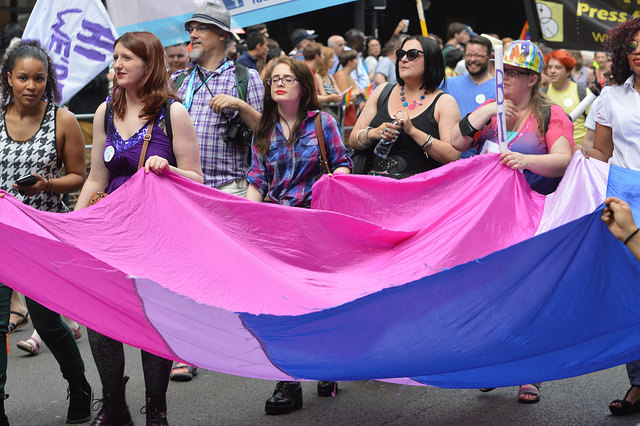What it means to be bisexual, the importance of your identity
Bisexuality Visibility Day was first celebrated in 1999.
What does it mean to be bisexual?
It depends on who you ask, but the common definition usually includes being attracted to more than one gender. To me, being bisexual is who I am. It is a wonderful part of me that I would never change. But, sometimes being bisexual can also mean feeling invalidated everywhere you turn; you aren’t gay enough for LGBTQ+ spaces, but you definitely aren’t straight either.
So who are you?
If you ask the media, you are wishy-washy, confused or just going through a phase. You are non-monogamous, promiscuous or (if we’re being honest) non-existent to begin with. The media’s portrayal of bisexual people is far from positive. This lack of proper representation is what we call “bisexual erasure.”
This issue is perfectly displayed in the popular show “Orange is the New Black.” The main character, Piper Chapman, has relationships with men and women and is presumably bisexual. However, she is never referred to as such in the series. When her husband finds out she is romantically involved with a woman, he calls her a lesbian, while her girlfriend calls her a straight girl.
Not only is her sexuality invalidated, but she also perpetuates the stereotype that bisexual people are cheaters who can’t decide. Her character generally gives bisexual people a bad reputation.
So why is it important to see bisexual characters in media? Why is it especially important to think about the way the industry portrays these characters?
Coming out might have been a different experience for me if I had heard positive messages about bisexual people. As a highschooler, I constantly struggled with my own identity, and it took years of confusion before I finally came out as bisexual. I questioned my identity because I didn’t feel straight, but I didn’t really feel like I was lesbian either. I was left misunderstood, hanging somewhere in the middle.
To me, bisexuality wasn’t an identity like gay or straight. I didn’t know what it meant, but it certainly wasn’t a good thing. This was all because I had never seen a positive image of a bisexual person before.
All of these assumptions the media makes about what it means to be bisexual didn’t only affect the way others saw me, but they also altered the way I saw myself. I’m a loud and proud bisexual now, but that doesn’t mean I don’t still feel the effects of bisexual erasure.
In honor of bisexual visibility week, take a moment to consider the way you think and speak about bisexuality. Make sure to avoid comments that invalidate bisexuality. If you are bisexual, remember that you are not half-way anything. Your sexuality is not defined by what you see on the screen, so don’t let the media dictate how you feel about yourself. Only you know who you love.







